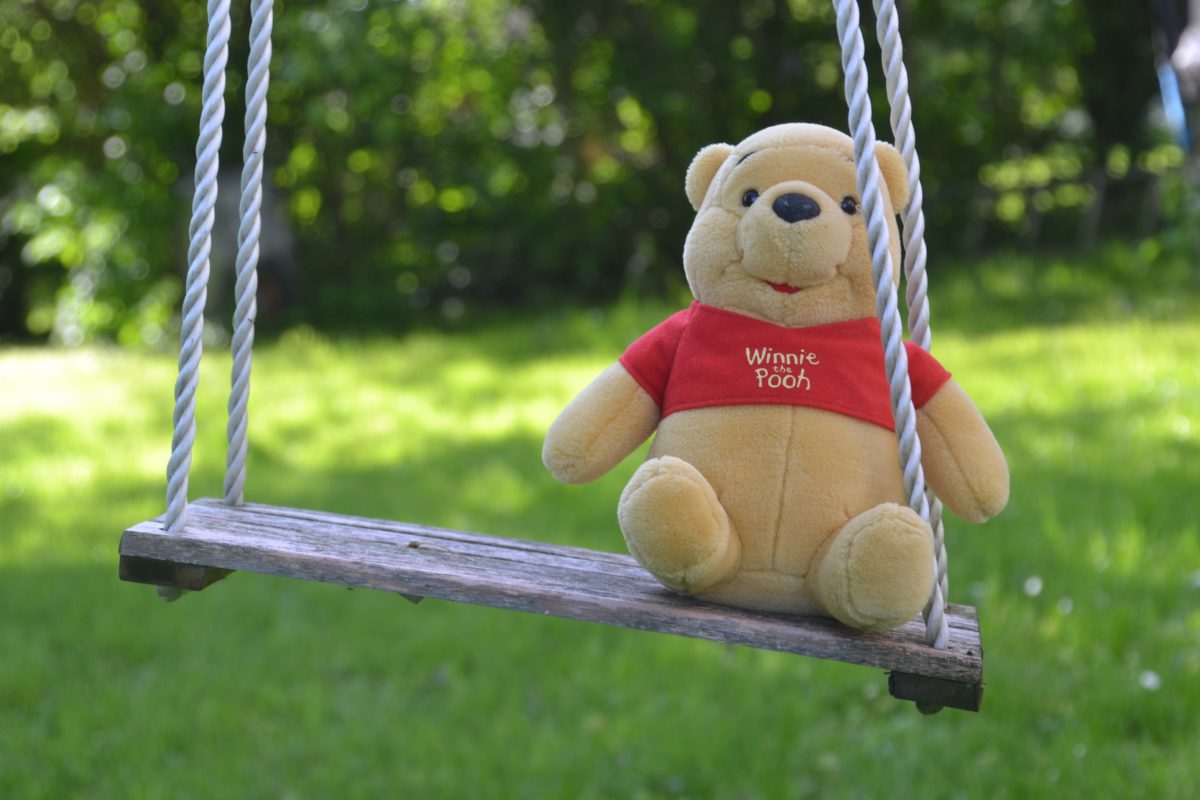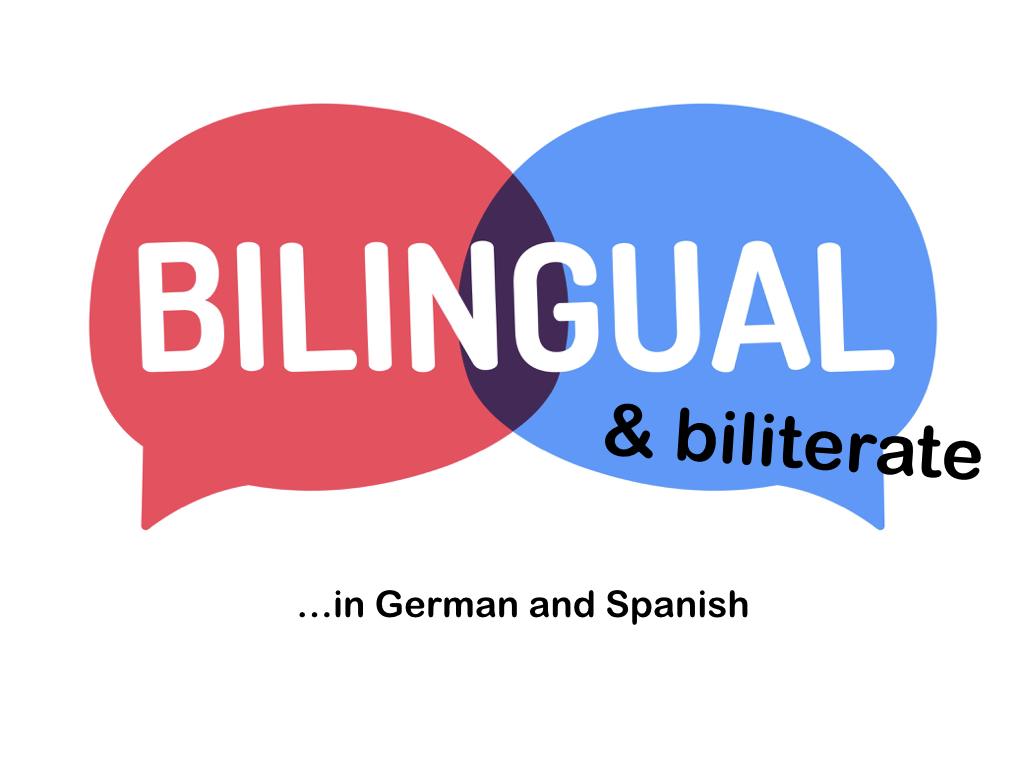Julia and Wolf live in Germany. Originally from Mexico, Julia used to be my Spanish teacher when I was in college. She has been teaching Spanish at different universities in Germany for over 20 years. Her husband, Wolf, is an engineer. They have a 17-year old son, Roberto, whom they have been raising with German (majority language) and Spanish (minority language) since birth. In the interview, they share experiences, insights, and occasional challenges (e.g., their son’s dyslexia) from their bilingual journey.
Mother: Spanish (native), fluent German
Father: German (native), some Spanish
Son (17 years old): German, Spanish, English, some Italian
______________________________________________________________________________
Veronika: Many thanks for sharing your family’s bilingual journey! starting off, what languages do you speak at home and who speaks what when with whom?
A Mexican-German family
 Julia: When Roberto was born, it was my mother and father, Wolf and I. My mother was a native speaker of Spanish so my mother and I spoke Spanish to Roberto all the time. Wolf spoke German to him. So we did one-parent-one-language but Roberto heard way more Spanish in his early years because I stayed at home with him.
Julia: When Roberto was born, it was my mother and father, Wolf and I. My mother was a native speaker of Spanish so my mother and I spoke Spanish to Roberto all the time. Wolf spoke German to him. So we did one-parent-one-language but Roberto heard way more Spanish in his early years because I stayed at home with him.
Wolf: I was at work during the day.
Veronika: I see. Did your mother live with you back then?
Julia: She lived next door.
Veronika: Ah, so she really was there every day.
Julia: Yes, and she also took care of him when I went back to work.
Veronika: Okay. What language do you speak with one another?
Julia: German.
Wolf: Our family language is German. Even after so many years, I still struggle with Spanish. Julia simply speaks German to well…[laughs]
Veronika: Ha! Yes, that is a problem my husband has as well. No real need to learn German because I speak English.
Wolf: Yes, the need for a language is important. I’m a bit lazy to begin with when it comes to learning languages and when we go to Mexico, they usually speak English with me. So again, no real need to brush up on my Spanish—just my English.
Watching Winnie the Pooh in Spanish
Veronika: So how about Roberto? How old is he now?
Julia: Roberto is 17.
Veronika: Okay, have you used anything other than direct interaction with him to keep up his Spanish over the years?
 Julia: Yes, we have. When he was little, the internet was not where it is today. But we used DVDs with cartoons like Winnie the Pooh. We watched them in Spanish. It was usually not the Mexican Spanish. It was rather Castellano, the Spanish you speak in Spain, but I thought “Better than nothing! The main thing is that he gets exposed to Spanish.” Up until today, Roberto understands Castellano very well and he also knows how to express himself well in Castellano!
Julia: Yes, we have. When he was little, the internet was not where it is today. But we used DVDs with cartoons like Winnie the Pooh. We watched them in Spanish. It was usually not the Mexican Spanish. It was rather Castellano, the Spanish you speak in Spain, but I thought “Better than nothing! The main thing is that he gets exposed to Spanish.” Up until today, Roberto understands Castellano very well and he also knows how to express himself well in Castellano!
Veronika: That’s interesting!
Children can switch effortlessly between languages
Wolf: What I—the one who struggles with languages—also found interesting was his ability to switch between languages! I found that fascinating! Even when he was a young child, as soon as he heard people speak Spanish he started speaking in Spanish to them. When we were in Mexico or meeting Spanish speaking friends here, he spoke Spanish to them. And then he turned around and would speak German to me. You could tell that he was missing a few word here and there but he just spoke!
Veronika: Has Roberto always had a dominant language?
 Julia: I think that at this point German is his dominant language mainly because he attends school in German. What we speak at home is more “everyday Spanish” not necessarily academic language. But he has been using media such as Netflix, TV series and the like to expose himself to more Spanish. Over the past couple of years, he has been very rigorous and consistent in doing that.
Julia: I think that at this point German is his dominant language mainly because he attends school in German. What we speak at home is more “everyday Spanish” not necessarily academic language. But he has been using media such as Netflix, TV series and the like to expose himself to more Spanish. Over the past couple of years, he has been very rigorous and consistent in doing that.
Using a tutor to help develop reading and writing skills in Spanish
Veronika: That is great! It does help a lot with oral skills. How about writing and reading? How did you approach that?
Julia: He worked with a tutor—a friend of mine. He has weekly sessions where he learns more “academic Spanish.”
Wolf: I have been taking classes as well.
Julia: Yes, for thirty years by now… [laughs]
Veronika: [laughs] When did you start the work with a tutor? Was that at the same time that he learned how to read and write in elementary school? Or did you start him later?
Wolf: Later.
Facing some challenges
Julia: Yes, a little later. Well, the thing is, Roberto started speaking quite late. He was 2.5 years old when he began to speak. But once he decided to start, he almost spoke in complete sentences—both in German and Spanish.
Veronika: So he just had a long silent period.
Julia: Yes, he did make use of that silent period! At school, he was diagnosed with dyslexia. He had difficulties with reading and spelling. He also had therapy for these challenges for over 8 years. He was diagnosed in second grade and had therapy or training until he completed 10th grade.
Veronika: Do you think that had to do with him being raised bilingually?
Julia: No! That is totally unrelated! That is a disorder that can happen with monolingual kids as well as with children who speak multiple languages. I think that a year more in kindergarten or a different way of teaching him how to read and write would have made a difference…but that’s a different story! He had issues recognizing words. That doesn’t have anything to do with him being raised with two languages. That’s a cognitive matter…something in his brain.
 Veronika: I completely agree! I think that’s a big myth or misconception that is still out there.
Veronika: I completely agree! I think that’s a big myth or misconception that is still out there.
Julia: Actually, I never thought about that. I always thought that he can speak both languages so it’s a matter of recognizing the word when you see it in writing.
Veronika: Hm hm.
Julia: But despite his challenge, he has been learning Spanish with my friend Jenny, his tutor, for six years now. He has been going every Saturday. By now it’s a small group with two German-Mexican girls who are also heritage speakers.
Veronika: Has that been working well? Do you see continuous progress?
Julia: I do. He does make spelling mistakes at times but that is normal. He makes those mistakes in German as well. What he is now considering is to study in Mexico for a semester. He thinks he needs it to boost his Spanish.
Traveling to Mexico for family visits and language immersion
Veronika: Has he been to Mexico regularly?
Julia: Yes, we take him as much as possible. But we are not going there to learn. We are visiting family. So it’s more speaking Spanish but not necessarily writing or literary skills that are being developed. When he was little, I always brought back books that I bought in Mexico. So we did read a lot in both Spanish and German as he grew up. That was very helpful!
A challenge at times for OPOL: Keeping everyone involved in the conversation
Veronika: That is something we do every day too! We read a lot. Did you two have moments when it felt like a challenge to keep up Spanish as the minority language?
Julia: Hmm…maybe my own laziness got in the way sometimes. I sometimes speak German to him. Wolf doesn’t understand everything in Spanish so I’m trying to keep everyone engaged in the conversation.
Veronika: Yes, it is always a balancing act when your partner does not speak your language!
Languages are tied to emotions
 Julia: My cousin has been visiting for a month now and when the three of us are alone, we only speak Spanish. It’s something that actually comes from Roberto. He wants to improve his Spanish. It’s a language he feels very close to.
Julia: My cousin has been visiting for a month now and when the three of us are alone, we only speak Spanish. It’s something that actually comes from Roberto. He wants to improve his Spanish. It’s a language he feels very close to.
Veronika: That is a huge achievement! Languages are always tied to emotions and when your child develops a positive relationship with the minority language, that is golden!
Julia: Yes, I have been realizing that lately. A few weeks ago, he said to me “Mom, you are a completely different person when you speak Spanish!” So I looked at him, thinking that he speaks fluently and he also thinks about the language and he does want to speak Spanish.
Making use of student exchange programs
Veronika: It would be great for him then to go to Mexico for a semester or a school year.
Julia and Wolf: Yes!
Veronika: Are there exchange programs?
Julia: Yes, the university here in Dortmund offers exchange programs with Monterrey and Mexico City.
Wolf: We had also considered having him participate in an exchange while he is still in high school. He could go to school there and stay with family. But the combination of electives he had selected here at school did not allow for that. For example, he has Italian at school and the Mexican schools there did not offer that. And he did not want to repeat a year here.
Julia: Yes, I think a semester in Mexico would be great.
A valuable piece of advice for parents: Don’t doubt yourself!
Veronika: Definitely! Okay, is there any advice you would give to other parents who are raising bilingual children or are thinking about starting a bilingual journey?
 Julia: Yes. Do not doubt yourself! Just do it!
Julia: Yes. Do not doubt yourself! Just do it!
Wolf: Yes, just do it! Personally, I never thought about it. It was just part of our lives. We agreed that she would speak Spanish and I would speak German and that we would be consistent in doing that. So even though it took a little longer for him to speak or learn to read and write, we never had any doubts that it would be a good thing for him. In fact, we always thought that learning two languages from birth is so much easier than learning another language later in life.
Julia: Especially when it’s a mother tongue. It’s a language that it tied to emotions. That is something that cannot be achieved to the same extent when you learn a language at school.
Veronika: True! Well, many thanks for sharing you experiences and valuable insights! Gracias!

